Exploring Japan’s Heritage and Tourism in Kyushu
June 30, 2024
IN BRIEF | 10 min read
- During their trip for JS3229 Field Studies in Japan, a field study course helmed by Associate Professor Chris McMorran from NUS Japanese Studies, the students were provided an immersive experience to understand how heritage is defined, preserved and commodified for tourism.
Heritage and tourism are deeply intertwined in Japan, a nation where the preservation of cultural and natural sites plays a pivotal role in constructing national identity and fostering economic growth.
JS3229 Field Studies in Japan, a field study course helmed by Associate Professor Chris McMorran from the Department of Japanese Studies at the NUS Faculty of Arts and Social Sciences delved into these themes, offering students an immersive experience to understand how heritage is defined, preserved, and commodified for tourism.
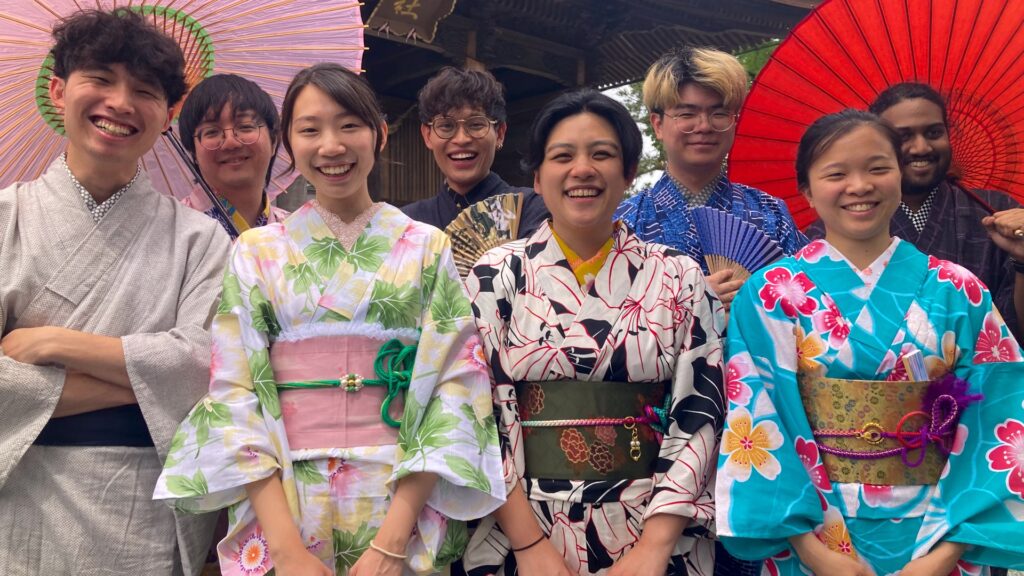
Laying the Groundwork
Before embarking on the journey, the students engaged in rigorous preparations at NUS. One concept that stood out was furusato, or "old village". While the term literally means an actual place, it often signifies a generalised nostalgic feeling. This concept of creating a native place would later help them understand the cultural significance and tourism strategies in the places they visited.
Additionally, the students prepared for their homestay by learning traditional Japanese etiquette in a tatami room. Understanding the cultural significance of respecting tatami mats was essential for fostering respectful interactions with their host families in the Aso region.
Immersing in Hakata's Heritage
In Hakata, the students experienced a blend of historical and contemporary influences. A walking tour revealed the ancient street map of Hakata, the serene Jotenji Temple, and the Kushida Shrine. Here, they engaged with locals to build confidence for deeper interactions in subsequent locations.
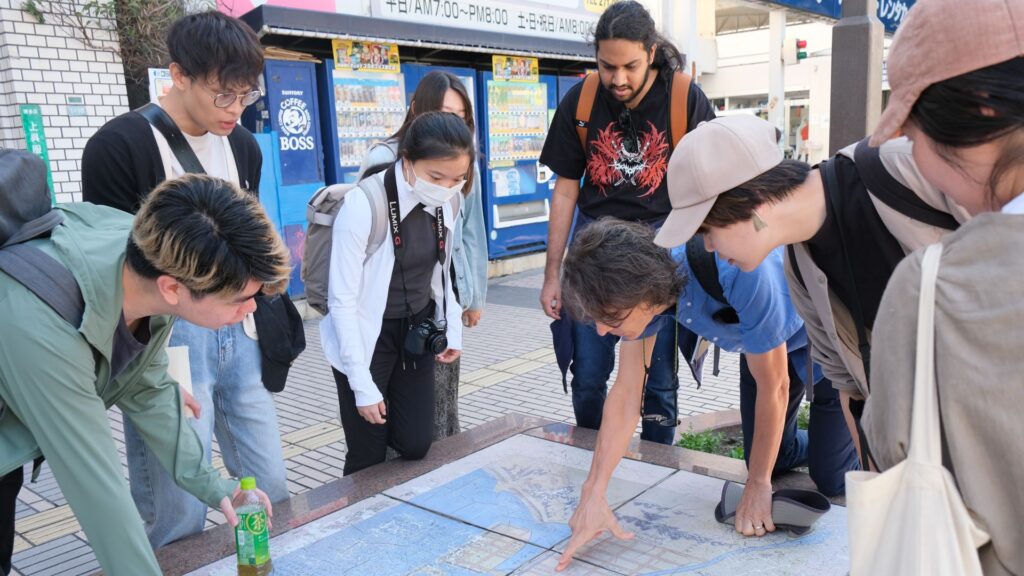
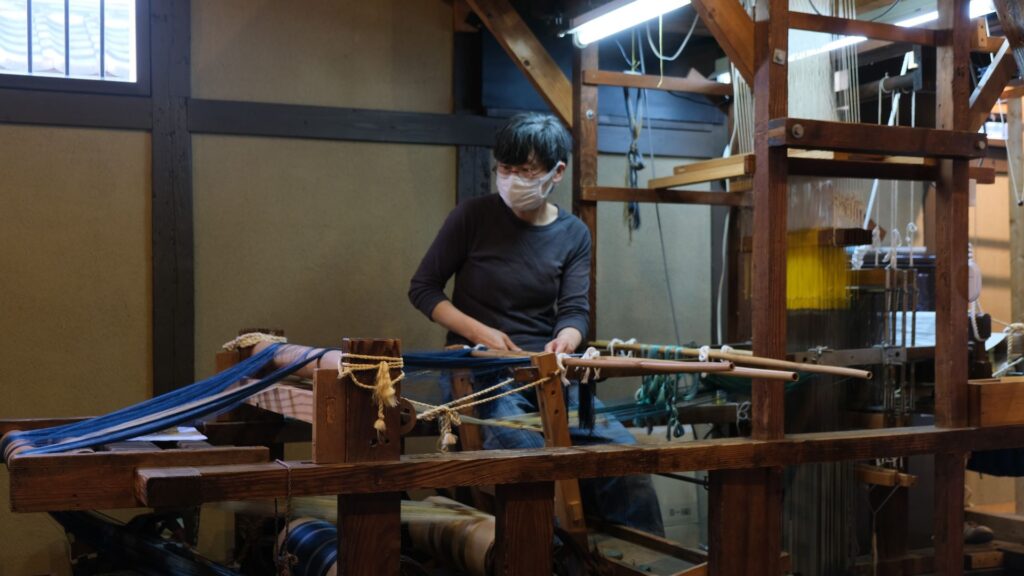
Their visit to the Kyushu National Museum, facilitated by NUS Faculty of Arts and Social Sciences alumna Sun Shuwei (Class of 2023), and her colleague Imai-san, provided an insider's view of artefact conservation. Meeting Shuwei also offered a personal connection on the trip. As a former teaching assistant for this module and now a professional in Japan, she shared her experiences of stepping out of her comfort zone to engage with locals.
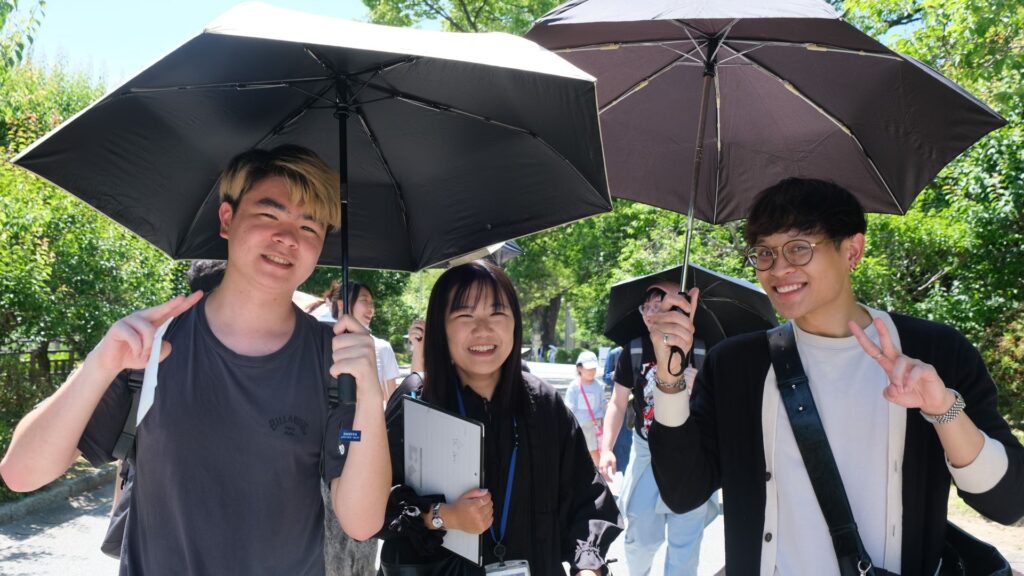
She also offered this advice to students: “It’s important to go out of your comfort zone and try things you don’t know you’d like. It could be fun! Also, make use of all the resources that NUS has - if you want to learn a language, there’s no better time. “
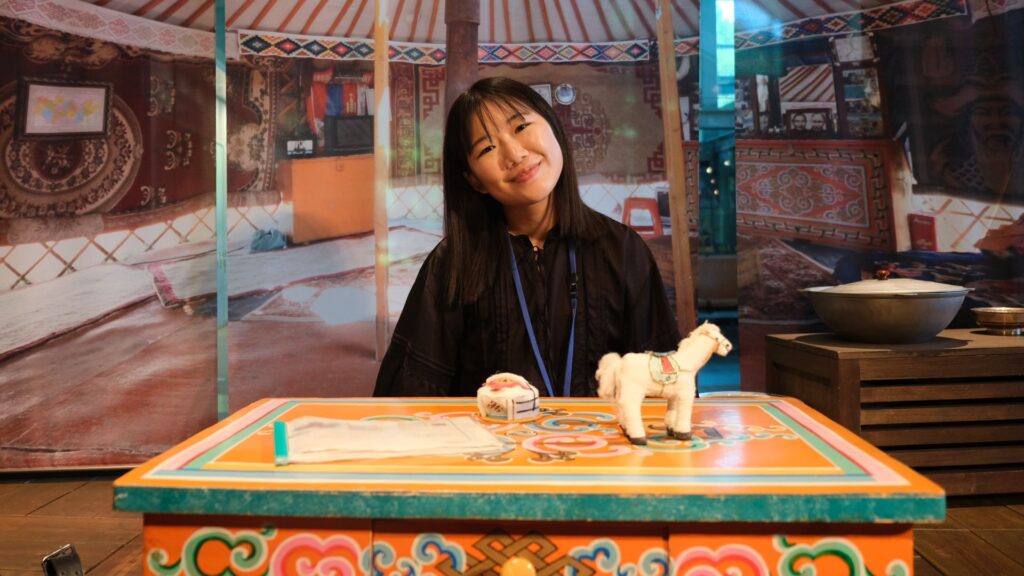
Tsuetate: The tranquil healing town
Offering a stark contrast to busy Hakata was the town of Tsuetate Onsen. This peaceful town, with its flowing river and onsen, emphasised the healing and restorative aspects of tourism.
Engaging with locals in Tsuetate was a highlight. Conversations with residents revealed personal histories, the community’s efforts to sustain its heritage and showcased the residents' remarkable hospitality and resilience. These interactions were invaluable for planning their walking tours, where students shared insights on local heritage sites.
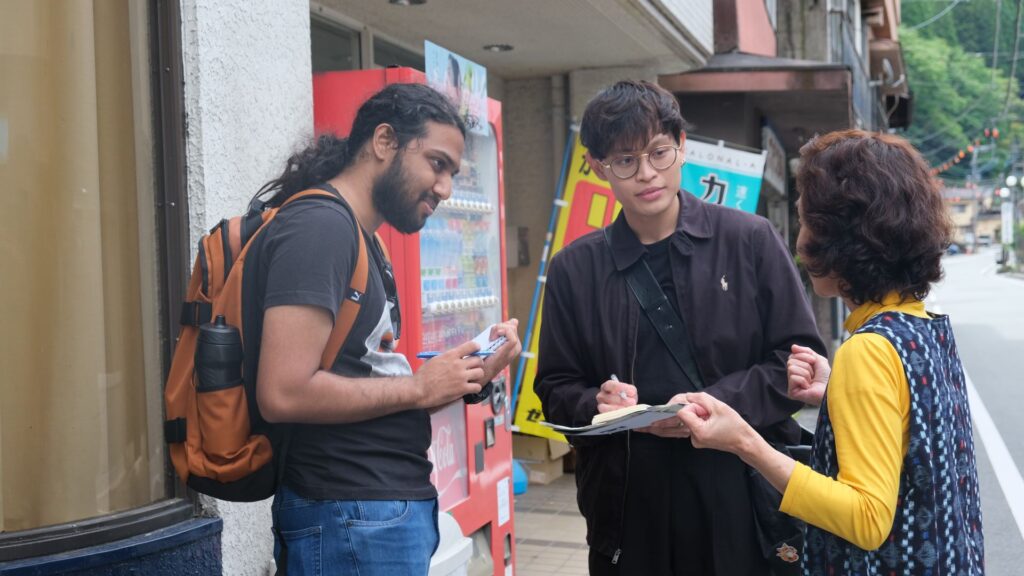
Rachel Tan, a Year 3 undergraduate majoring in Japanese Studies, found Tsuetate to be her favourite area. "It was just so tranquil and beautiful, compared to the hustle and bustle of Fukuoka city. I really enjoyed exploring the town and talking to the residents, hearing their personal stories and finding out what Tsuetate meant to them," she shared.
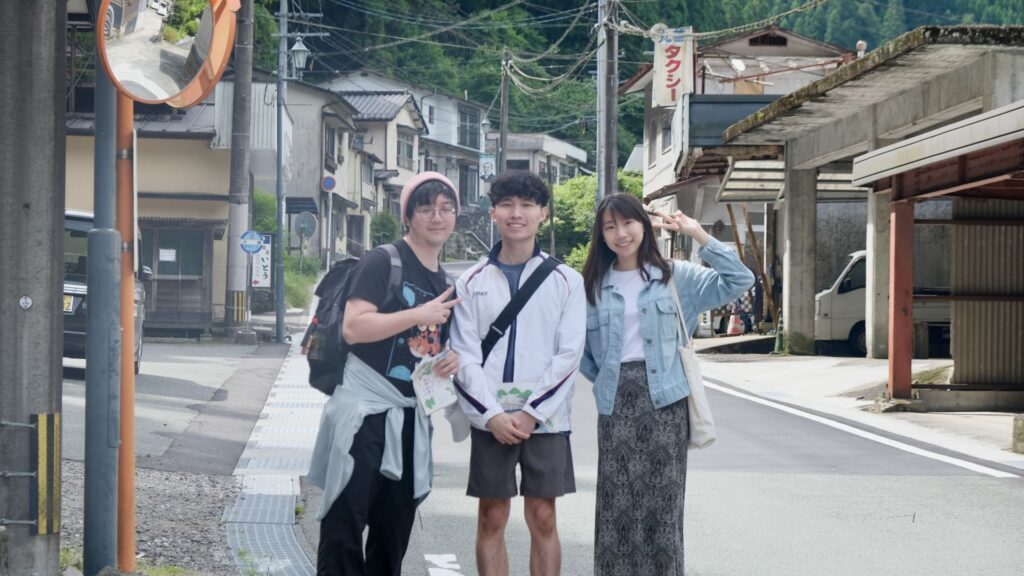
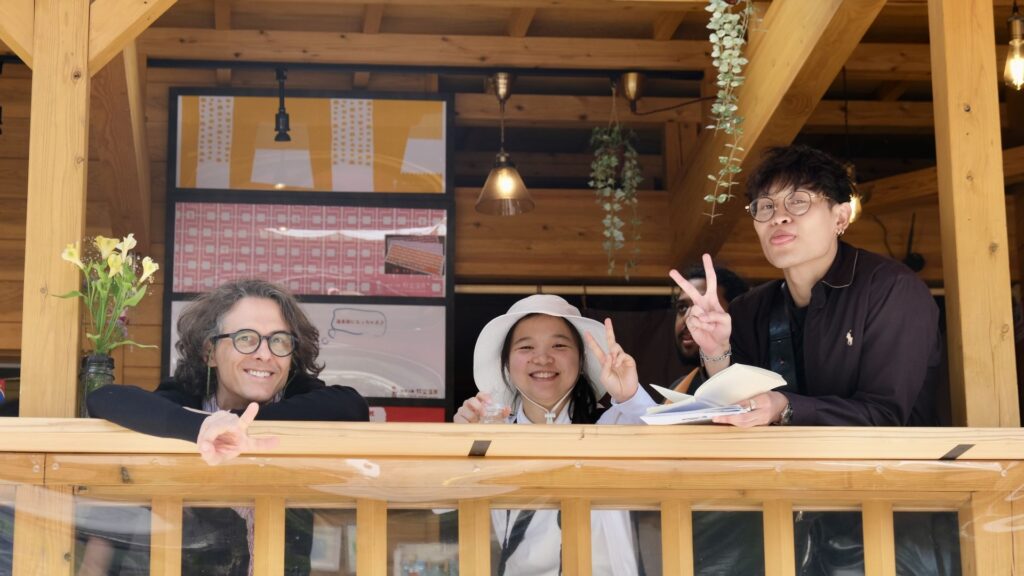
Aso: Cultural immersion and breathtaking landscapes
In Aso, students participated in various cultural activities, including mochi-making, wearing kimonos, meditation, and calligraphy. They also experienced homestays with local families.
Mohamad Matin Bin Mohamad, a Year 4 student majoring in Japanese Studies, highlighted the calligraphy session as one of the best experiences of the trip. "I enjoyed the calligraphy, especially seeing everyone's thought process in choosing and writing their words. It revealed what was important to them and their personalities through their choices and writing styles. I chose 'ambition' because it reflects my personality."
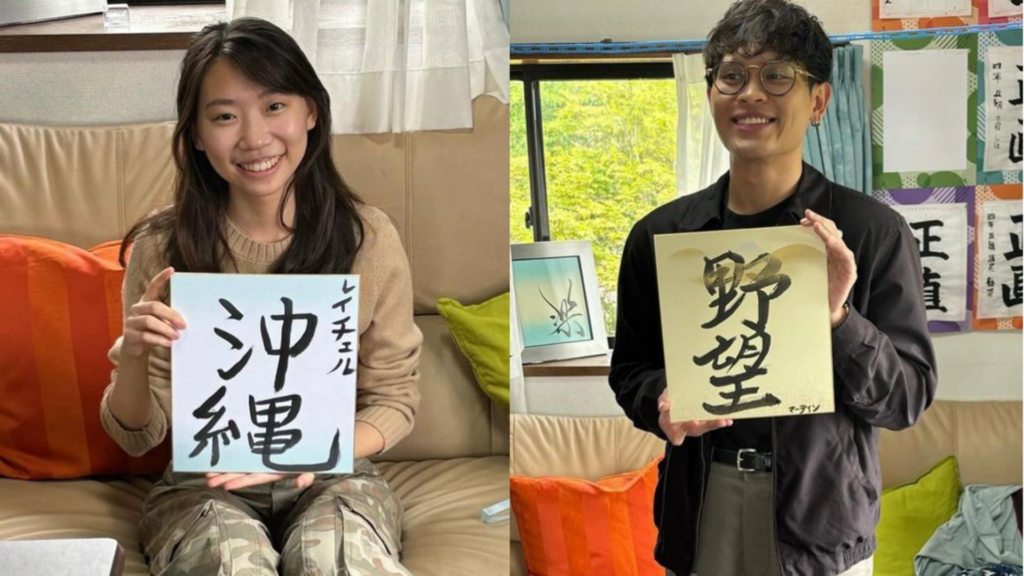
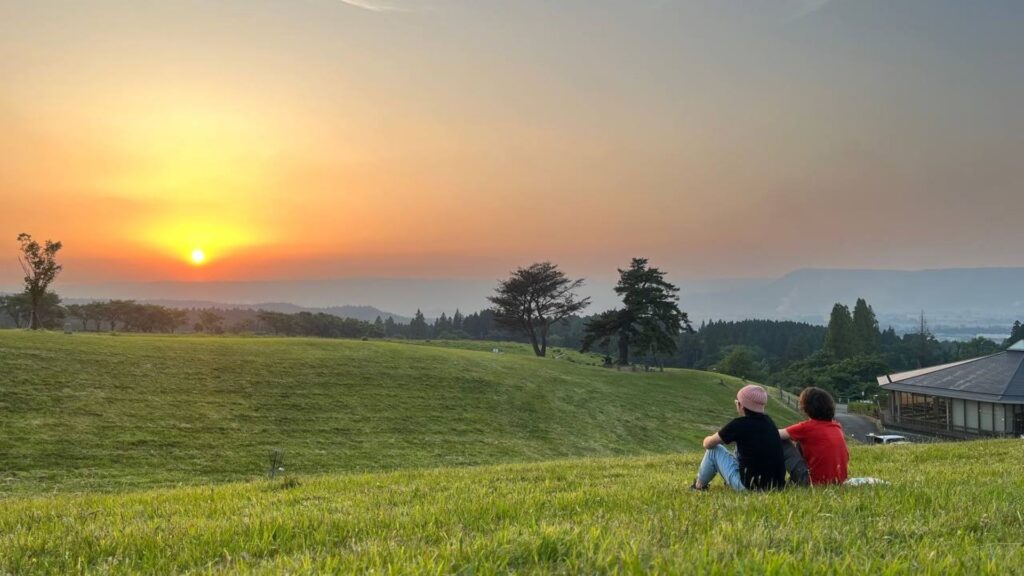
Some others enjoyed the meditation and Rachel identified it as her favourite activity in Aso. "It was my first time doing something like that, and it was just such an interesting experience. Under the guidance of the monk, we learned how to sit still and meditate for 40 minutes. Surprisingly, the time passed a lot quicker than expected, and I felt spiritually nourished by the end of it. The delicious matcha and Japanese sweets they served us after the session made the whole experience extra rewarding," she said.
The authentic homestay experience
The homestay offered students a profound immersion into Japanese culture and daily life. The hospitality of the homestay families was exceptional, with the hosts going out of their way to make the students feel welcome and comfortable. "I was treated as one of their own," shared Kien Sieng, a Year 3 Business Administration undergraduate, reflecting on the warmth and generosity of his host family.
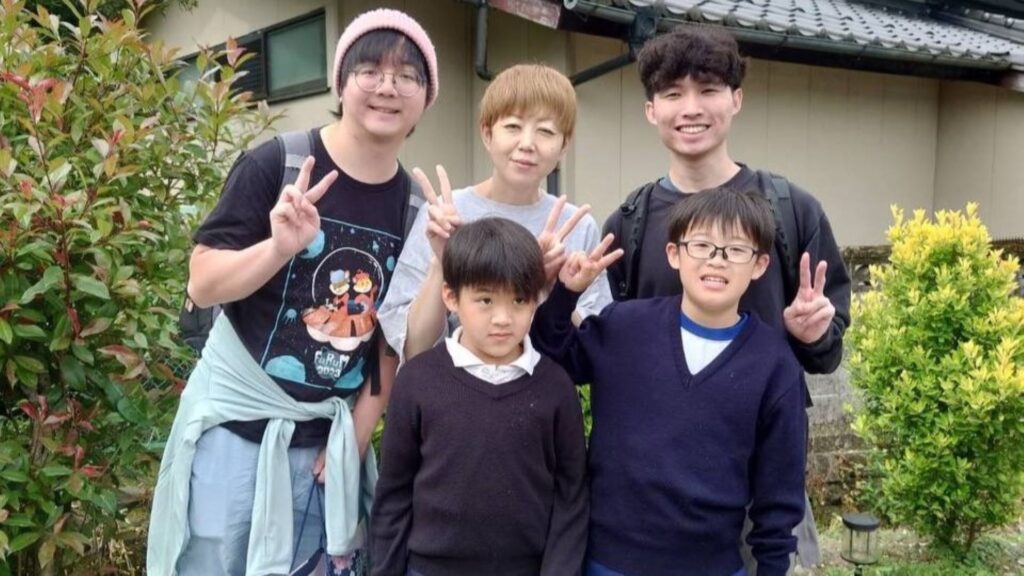
Charisse Thong, a Year 2 undergraduate majoring in Physics with a minor in Japanese Studies, and Rachel also shared their delightful homestay experience of being hosted by a kind elderly couple whose youngest daughter, Chiaki, returned to the household for the duration of their stay. "She and our host mum were really sweet, making lots of delicious meals for us, and even teaching us how to bake a strawberry shortcake with the fresh strawberries we picked together," Rachel recounted. They had traditional Japanese breakfasts, helped prepare for a big family dinner, and even played with sparklers in the yard.
"It was fun to interact with the different family members and also see the differences between a household in Aso and in Singapore," Charisse added.
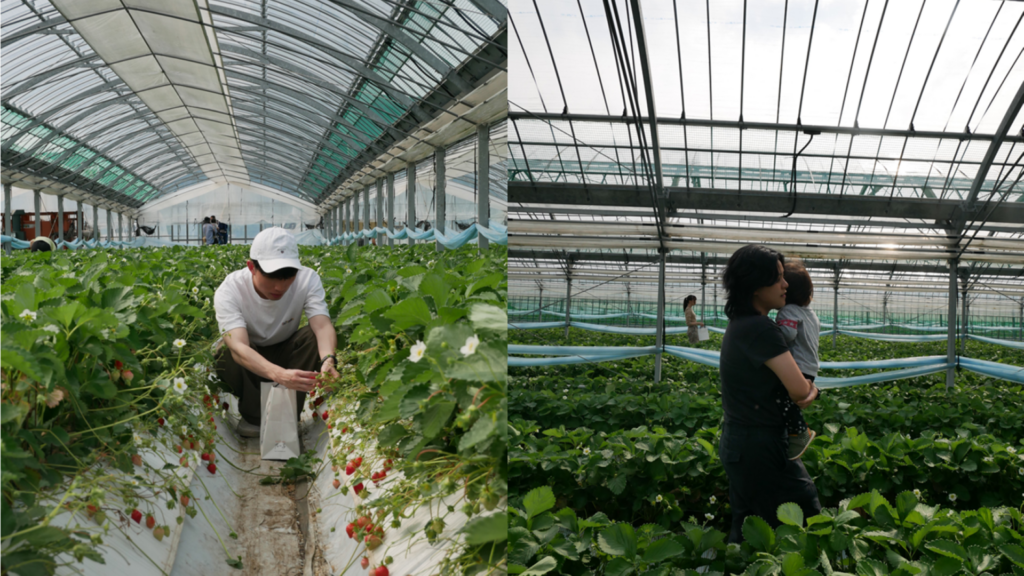
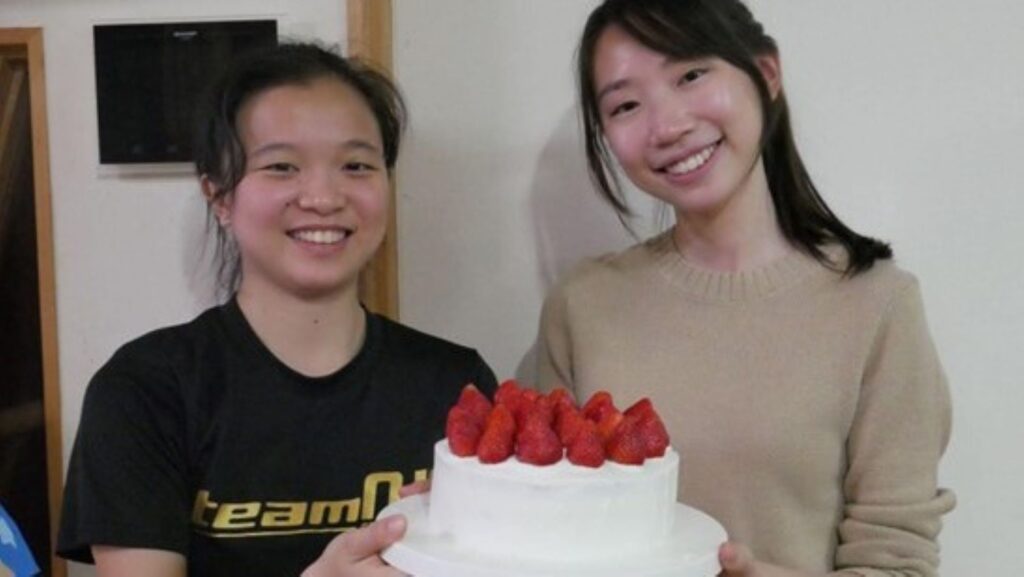
Mitchell, a Year 3 undergraduate with a double major in Chemical Engineering and Japanese Studies, emphasised the authenticity of the experience, stating, "If you consider tourism as the search for the authentic, I don’t think there’s anything more authentic than a homestay."
“Be open to talking about yourselves and be courteous and follow all the implicit culture rules,” said Benjamin Khor, a Year 2 undergraduate majoring in Chemistry with a minor in Japanese Language, sharing his advice. The homestay not only fostered cultural exchange but also created lasting memories and deep personal connections, underscoring the unique and transformative nature of this educational journey.
Contrasting urban and rural experiences in Kumamoto
The field study concluded with a visit to Kumamoto City, where students explored Kumamoto Castle and met the governor and the city’s mascot, Kumamoto. This experience provided a balance to the rural and small-town settings of the previous locations.
Visiting Kumamoto Castle was particularly fascinating for the students. Matin observed, "The detailed restoration process was impressive. The rocks that fell from the wall were labelled and reused, showing a strong commitment to preserving the castle's integrity. The contrast between the meticulously restored exterior and the modernised interior, complete with TV screens for tourists, was particularly striking."
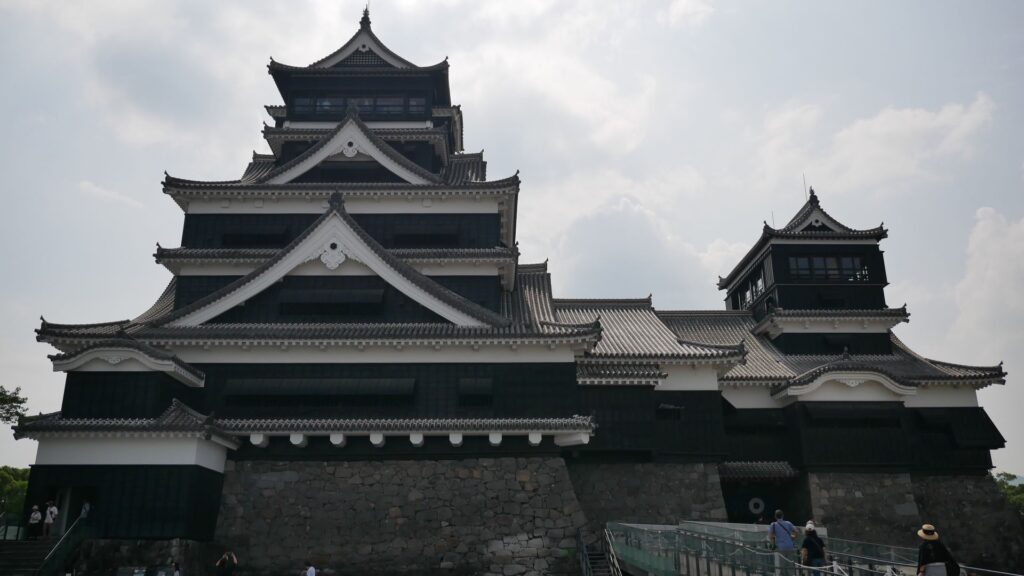
Mordecai Cheah, a Year 3 Faculty of Arts and Social Sciences undergraduate, appreciated Kumamoto’s relaxed yet urban atmosphere. "Looking at the reasons why we travel to see things and the purpose of tourism helps me appreciate the heritage of the places we visited," he reflected.

Personal growth and reflections
The students unanimously recommended the course for its approach and experience. "It is a very comprehensive course, and you’ll learn more than what you’ve read in the readings," Kien said. The field study not only provided a deeper understanding of Japan’s heritage and tourism but also encouraged growth and cultural appreciation.
Charisse echoed these sentiments, adding a personal lesson she learned: "Don’t be afraid to talk to people. The fewer expectations you have, the more surprised you’ll be."
Enthusiastically recommending the course to other students, she added: “My Japanese language ability probably improved a little bit too. I had a great time with my course mates, teachers and the people I met through this program. It’s a great course if you want to learn more about Japan and people!"
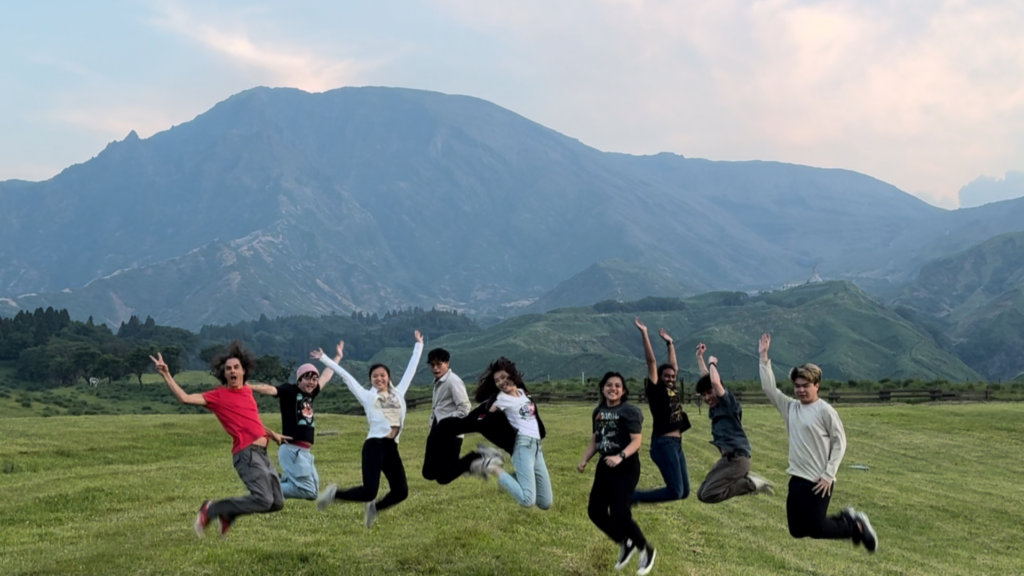
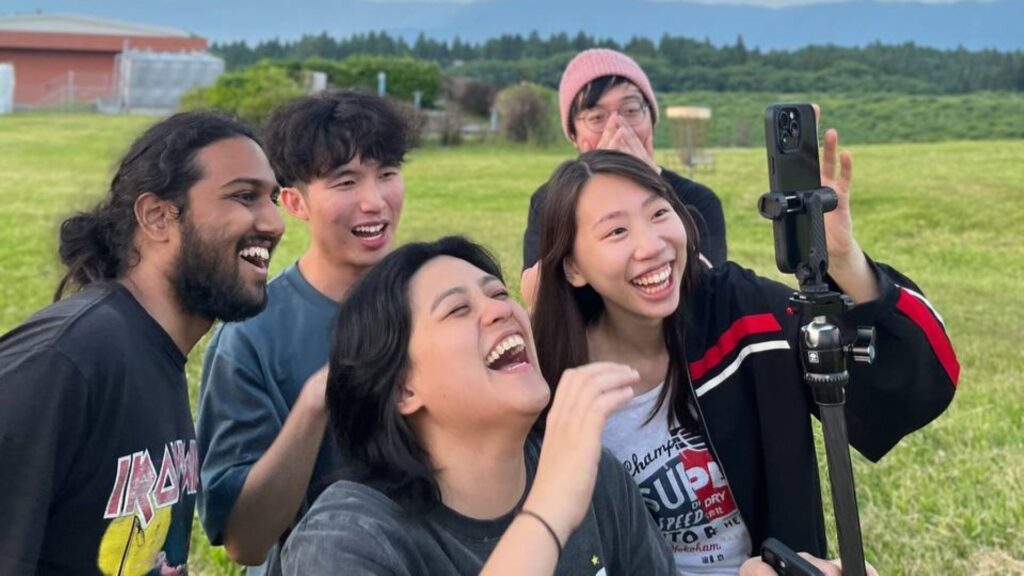
This story first appeared in NUSNews on 28 June 2024.

